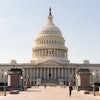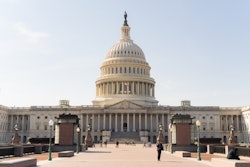
The students, represented by the advocacy group Speech First, contended that the university's system for reporting incidents of bias creates an environment that suppresses campus dialogue by permitting anonymous reports about content deemed prejudiced or demeaning.
Indiana University officials defended their program, emphasizing that it was designed for educational purposes and community support rather than punishment. The two-person team that manages the program doesn't have disciplinary authority, according to the university.
This case highlights ongoing tensions between efforts to create inclusive campus environments and concerns about protecting free expression. Speech First, which brought the lawsuit, claims similar programs exist at approximately 450 universities nationwide and has previously reached settlements ending comparable initiatives in Michigan, Texas, and Florida.
In his written dissent, Justice Thomas expressed concern that bias response teams could potentially refer students for disciplinary action and noted signs that such programs might have a chilling effect on student speech. "Given the number of schools with bias response teams, this Court eventually will need to resolve the split over a student's right to challenge such programs," Thomas wrote.
The majority of justices did not provide their reasoning for declining the case, which is standard practice for such decisions.















